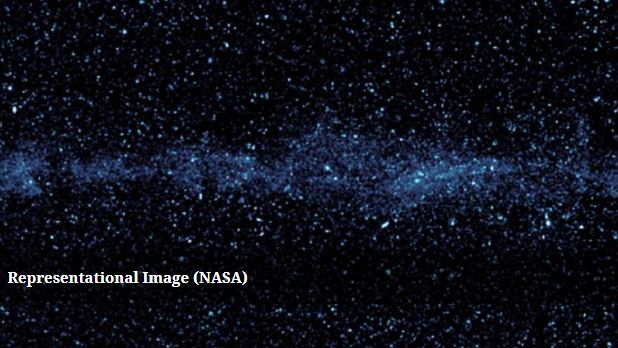Scientists find mysterious radio signal from deep space that repeats every 16 days
FRBs are still mysterious phenomena to astronomers, despite first being discovered in 2007.
Scientists claim to have found a radio signal from deep space that repeats every 16 days. Known as the Fast Radio Burst (FRB), it sends the radio wave bursts for four days, stops for 12 days, and then repeats the cycle.
A team of scientists led by astrophysicist Dongzi Li from the University of Toronto found the distinctive repeating pattern of the FRB. A pre-published study shows that the initial 28 patterns were observed between September 2018 and October 2019. The study also claims that this pattern is a first such detected periodicity of any kind in an FRB source.
“The found location is radically different from the previously located repeating FRB, but also different from all previously studied FRBs,” said Kenzie Nimmo, a doctoral student at the University of Amsterdam. He further added that the differences between the repeating and non-repeating FRBs are less clear and these events may not be linked to a particular type of galaxy or environment.
The FRB has been traced to a galaxy called SDSS J015800.28+654253.0, which is 500 million light-years away from Earth. In spite of the distance, it is the closest FRB detected so far, reported Fox News.
The FRB is speculated to be orbiting around a compact object, which is resulting in its pattern to repeat. The cause of this pattern is unknownFRBs are still mysterious phenomena to astronomers, despite first being discovered in 2007. In July 2018, an FRB that hit Earth was nearly 200MHz lower than any other radio burst ever detected, the report added.




